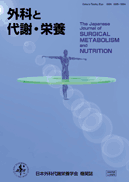Volume 55, Issue 5
Displaying 1-11 of 11 articles from this issue
- |<
- <
- 1
- >
- >|
-
2021 Volume 55 Issue 5 Pages 159-165
Published: 2021
Released on J-STAGE: November 15, 2021
Download PDF (1258K) -
2021 Volume 55 Issue 5 Pages 166-169
Published: 2021
Released on J-STAGE: November 15, 2021
Download PDF (732K) -
2021 Volume 55 Issue 5 Pages 170-174
Published: 2021
Released on J-STAGE: November 15, 2021
Download PDF (833K) -
2021 Volume 55 Issue 5 Pages 175-178
Published: 2021
Released on J-STAGE: November 15, 2021
Download PDF (949K) -
2021 Volume 55 Issue 5 Pages 179-184
Published: 2021
Released on J-STAGE: November 15, 2021
Download PDF (746K) -
2021 Volume 55 Issue 5 Pages 185-189
Published: 2021
Released on J-STAGE: November 15, 2021
Download PDF (1027K) -
2021 Volume 55 Issue 5 Pages 190-195
Published: 2021
Released on J-STAGE: November 15, 2021
Download PDF (643K) -
2021 Volume 55 Issue 5 Pages 196-200
Published: 2021
Released on J-STAGE: November 15, 2021
Download PDF (934K)
-
2021 Volume 55 Issue 5 Pages 201-208
Published: 2021
Released on J-STAGE: November 15, 2021
Download PDF (1838K) -
2021 Volume 55 Issue 5 Pages 209-217
Published: 2021
Released on J-STAGE: November 15, 2021
Download PDF (1583K)
-
2021 Volume 55 Issue 5 Pages A55_5-
Published: 2021
Released on J-STAGE: November 15, 2021
Download PDF (664K)
- |<
- <
- 1
- >
- >|
